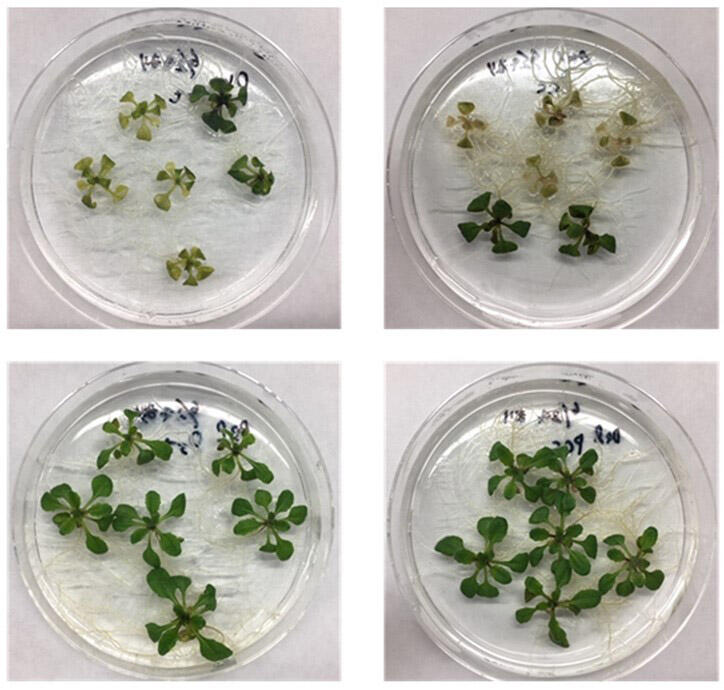A research group consisting of Associate Professor Toshiki Furuya, Professor Kazuyuki Kuchitsu, and graduate student Mari Kurokawa of the Department of Applied Biological Science, Faculty of Science and Technology, Tokyo University of Science announced on April 14 that it had developed a simple screening method for microorganisms that activate the immune system of plants. Plant immune activation ability was evaluated by contacting microorganisms with cultured plant cells in vitro and measuring the production of reactive oxygen species (ROS) as an index of the immune response. Researchers state that candidates for microbial pesticides can be investigated in a matter of hours. The results were published in the international scientific journal "Scientific Reports".
Food shortages are a main concern because of the increase in world population. Moreover, pest species have also added to this issue as a result of global warming. Although the use of chemical pesticides has achieved a certain degree of results, in recent years, microorganisms that activate the immune system of plants have been attracting attention because heavy pesticide use increases the appearance of resistant pests. Plants show immune responses such as ROS production and defense-related gene expression upon pathogenic invasion. If their immune response upon invasion is weak, an infection cannot be prevented. However, certain microorganisms can activate the plant immune system similar to a vaccine. Unfortunately, the search for such microorganisms has previously required complicated inoculation tests in a lab environment.
Previously, this research group has clarified that when cells from the cultured tobacco plant cell line BY-2 recognize a protein (cryptogein)--derived from the pathogenic oomycete Phytophththora cryptogea--as a signal molecule, they exhibit an immune response similar to that observed in plants infected with the pathogen. In addition, using this experimental system, they have clarified that the ROS production pattern is effective as an index for the immune response of plants and have identified several compounds that activate the immune response. During this experiment, the research group applied the previous research and applied a screening method for measuring ROS by adding cryptogein to cultured cells in vitro to evaluate the ability of microorganisms to activate plant immunity. Specifically, with the cooperation of Suzuki Farm (Nishisuna-cho, Tachikawa, Tokyo), they were provided with Japanese mustard spinach grown organically and isolated approximately 30 strains of bacteria within this Japanese mustard spinach. They searched for candidate bacteria using the developed method.
As a result, eight candidate bacteria that promote Cryptogein-induced ROS production in BY-2 cells were detected. Upon bringing each candidate bacterium into contact with the roots of Arabidopsis thaliana shoots, two strains of Delftia (BR1R-2 strain) and Arthrobacter (BR2S-6 strain) bacteria were observed to settle inside (endogenously infect) the plant, without affecting the growth of the plant. Further, the researchers observed that when Arabidopsis in which these two candidate bacteria had been endogenously infected was separately infected with tomato spotted fungus and soft rot fungus, the damage to the Arabidopsis was suppressed to a low level. In other words, these organisms conferred disease resistance. The number of tomato leaf diseases that managed to successfully infect this resistant Arabidopsis was measured. Relative to the diseases present in the resistance-less (untreated) plant (100%), infection rates decreased to 0.9% in Arabidopsis infected with BR1R-2 strain and 7.4% in those infected with BR2S-6 strain. In contrast, growth of untreated Arabidopsis was significantly inhibited when they were infected with the fungi that cause tomato leaf disease and soft rot.
Upon analyzing the expression of Arabidopsis defense-related genes in plants endogenously infected with the highly effective BR1R-2 strain, the researchers showed that the expression of genes related to both salicylic acid and jasmonic acid pathways, both typical immune response pathways, was upregulated. They also confirmed that this expression was further enhanced when these plants were subsequently infected with fungi causing tomato leaf disease and soft rot. Through these studies, it was proved at the genetic level that the bacteria discovered by the newly developed screening method activated the plant's immune system. Recent research has also confirmed that Japanese mustard spinach can be made disease-resistant. Associate Professor Furuya said, "Because we have established a screening method in this research, we will aim to obtain candidate bacteria for microbial pesticides from other plants in the future. Furthermore, we would like to verify the effect under general cultivation conditions. At the same time, we would like to proceed with research to clarify the mechanism by which disease resistance is conferred. "

Credit: Tokyo University of Science
This article has been translated by JST with permission from The Science News Ltd.(https://sci-news.co.jp/). Unauthorized reproduction of the article and photographs is prohibited.




